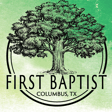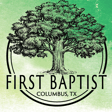
The Home of the Brave (2 Kings 18:1-8)
The last five words of our National Anthem say, “…the home of the brave.” The stanza actually asks a question if our nation is still “…the land of the free and the home of the brave?” The reason we are a free nation is because of so many Americans were courageous under various difficult circumstances throughout the 249 years of our history.
It is important to have positive role models who demonstrate character traits like courage. The Bible is full of men and women who displayed confidence even under tremendous pressure. I think of characters like Joshua, David, Ruth, Esther, Daniel, Mary, Jesus, Stephen, Paul and many, many others.
Today I would like to introduce you to a brave young leader named Hezekiah. His story can be found in different passages of the Bible, but the condensed version is located in 2 Kings 18:1-8. Let’s look at this passage as we reflect back upon our nation’s history and leaders, and may this in some way strengthen our resolve to remain a nation known as … “the home of the brave.”
Brave Leaders Accept Responsibility, 18:1-2
Brave Leaders Do What Is Right, 18:3
Brave Leaders Aren’t Afraid to Make Removals of Evil, 18:4
Brave Leaders Gladly Submit to the Lord’s Rule, 18:6
Brave Leaders Wait for God’s Reward, 18:7
Brave Leaders Know When to Resist, 18:7-8
---
Growing in Grace Devotions and Inspirations
Hosted by Pastor Victor Morrison
First Baptist Church
1700 Milam Street
Columbus, TX, USA 78934
http://fbccolumbustx.org/

